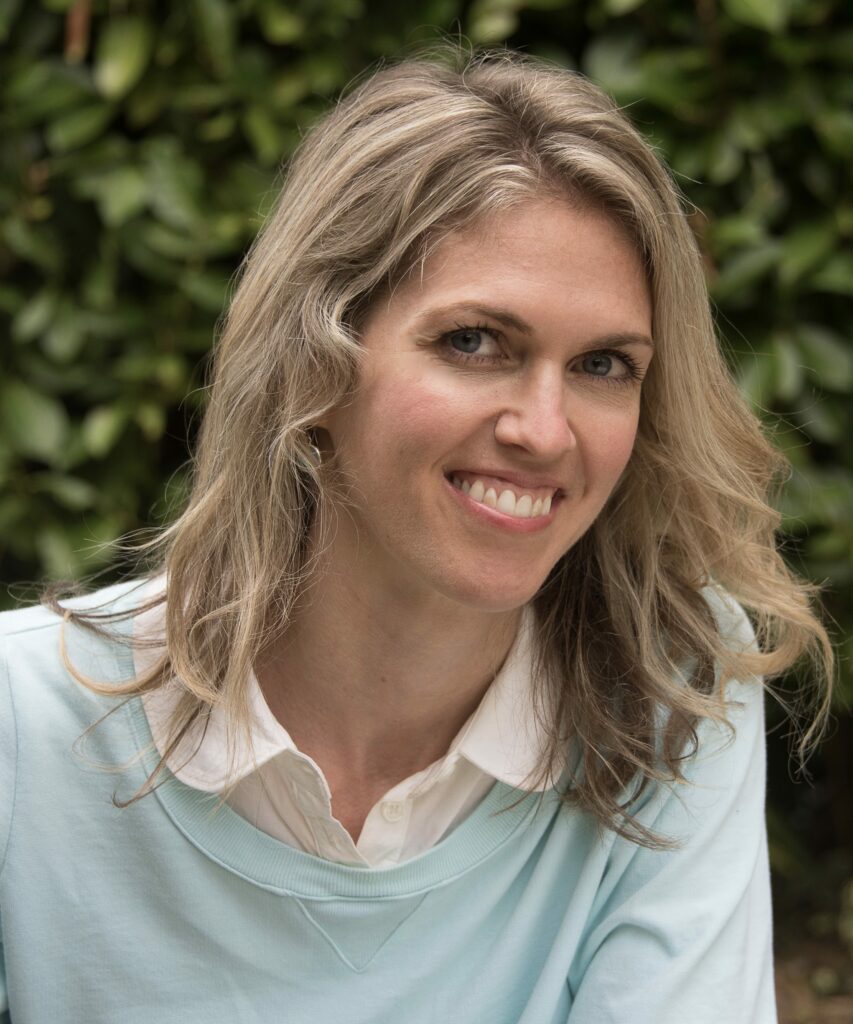If you’re wondering if you have endometriosis (I’ll just call it endo) or you’ve been diagnosed and are trying to get and stay pregnant, then you’re in good company. It’s a journey within a journey to your baby. Here are some fast facts about a complex disease that is immunological and under-researched, like women’s health and fertility in general.
You deserve answers and support.

Definition: Endo is a disease where endometrial-like cells that grow as lesion outside your uterus such as in the fallopian tubes, ovaries and/or in the bowels. The most common places are the ovaries, gastrointestinal tract and urinary tract.
About 10% of women of reproductive age have endo, as well as others not included in that data. Not everyone who has endo knows that they do.
It can be the cause of unexplained infertility, i.e. why you’re not getting pregnant. Infertile people are 6 to 8 times more likely to have endo and it’s thought that 30 to 50% of people with endo experience medical infertility. If you’re trying to get pregnant, and you probably are because you’re on this website, then this could be the cause of your unexplained infertility. One way to learn more about the possibility of having endo is talk to your doctor about the Receptiva test, but the way to confirm is through lapriscopic surgery. Receptiva is a test of the BCL6 that is quite effective at predicting if you have endo, but costs money, pain and time and some carry on with treatment assuming you have it without a diagnosis or this test. There’s a lot that goes into deciding on the next steps that are right for you and this is just a taste for what actually goes into this process.
Symptoms or indications that position you to be more likely to have endometriosis:
- Painful intercourse (dyspareunia) has been reported in up to 80% of people with endometriosis.
- Infertility and increased risk of miscarriage, although to be clear not everyone will experience either
- Periods every 27 days or less, basically short periods.
- Got your first period before you were 10 years old.
- Stomach issues such as nausea, bloating and constipation.
- Uterine abnormalities such as a tilted uterus.
- Bloating and/or painful periods, sometimes extremely painful.
- Pain in the lower back, when pooing and/or in the pelvis.
- Infertility – sometimes this is the only symptom.
- Fatigue.
- Fluid in your uterus.
- Miscarriage(s) and chemical pregnancies (early loss).
- (Bio) family member is diagnosed with endo.
- Nothing. Twenty to 25% of people don’t have any symptoms.

Endo increases your risk of having a miscarriage, according to a 2016 study. Endo may increase your risk by as much as 77%. This might be helpful to prepare yourself if you’re diagnosed, or if you have had a loss or losses and that endo could be contributing or the cause. If you’ve had more than one miscarriage then it is something to discuss with your fertility doctor, ie. your reproductive endocrinologist.
There are 4 stages of endo. Stage 1 is mild and stage 4 is most severe. Symptoms aren’t correlated with the stage of endo you have, which adds to the complexity. According to a 2017 study, the milder forms of endo are thought to increase your risk of loss, because of the effect on egg quality, and not the more severe cases. The 4 stages according to the ASRM (American Society for Reproductive Medicine) are:
- Stage I is a minimal disease with a few superficial implants.
- Stage II is a mild disease with more and deeper implants.
- Stage III is a moderate disease with many implants, endometrial cyst(s) on one or both ovaries, and the presence of filmy adhesions.
- Stage IV is a severe disease with many deep implants, large cysts on one or both ovaries, many dense adhesions.
There’s also deep infiltrating endometriosis (DIE), which is more severe and more complicated in how to proceed with treatment for fertility.
Endo runs in families. If someone in your biological family member (like your sister, mom, grandma or aunt) has endo, you are 7 to 10 times more likely to have it yourself.
Endo is not your fault. You didn’t do anything to ‘contract’ this disease.
It takes an average of 8 to 10 years to be diagnosed. You won’t not necessarily see the lesions on a trans-vaginal ultrasound, MRI or hysteroscopy and many doctors will likely attribute your symptoms to other common ailments because of their training (e.g. when you hear horse hooves, expect to see a horse and not a zebra). This can leave you with distrust with your care team and without the answers you need. It’s not uncommon for a first diagnosis to be irritable bowel syndrome (IBS), although having endo does increase your likelihood of having IBS.
Related, many doctors are ill-equipped to diagnose or treat endo. They aren’y trained enough in endometriosis to give you the medical advice you need. In a study, 63% of family doctors/General Practioners did not feel comfortable diagnosing and treating patients with endometriosis. Surgeons vary in terms of experience as well. This can make it that much more overwhelming. Support is key. You aren’t alone, and this doesn’t make doctors off the hook, more research and training in medicals schools are needed, but an important impact on your endo journey.
Diagnoses is usually only confirmed through laproscopic surgery. It can be missed, especially if the surgeon is not experienced.

Treatments vary and depend on treating the symptoms or fertility issues or both. Some treatments are being studied in clinical trials but a cure does not exist. It also depends if treatment is for symptoms such as pain or for fertility or both. The way forward would change depending on the priority. Some are lower risk and ready to try now. Diet changes and supplements help some people. If you’re doing IVF, there are protocols specific to endometriosis. This Facebook IVF with Endometriosis support group may be helpful. Often the decision is whether to have surgery to try through less invasive means such as IUI or unassisted but surgery can affect egg quality, so it’s an important and nuanced discussion with your care team. Pelvic floor physio therapists play a role, acupuncture and endo expert dietitians.
The doctors who are experts in endometriosis are not in huge supply, but worth researching. IThere are plenty of fertility doctors (reproductive endocrinologists) who have the skills to provide you with the care you need for your fertility. Some have more expertise than others. But when it comes to some treatment that’s necessary for you, it can get expensive and will be out of reach for most people, but there are options available. A key recourse includes Nancy’s Nook, run by a retired nurse, houses information on what to discuss with you doctor and who. There is a more full list of symptoms on her site as well. iCareBetter is a platform with access to doctors and medical information for patients like you. Both have the live list of physicians stored and updated on who are experts and trustworthy to provide the consult and potentially perform the surgery you need. Three include: Dr. Andrea Vidali, Dr. Steven Vasilev and Dr. Gaby Moawad. Like I mention about about treatment, it varies and research is part of your journey. I’m here too.
Getting and staying pregnant isn’t always going to cure endometriosis. It’s a myth that it always will.
Life with extremely painful periods and other symptoms of endo can be very debilitating. This is an important misunderstanding. There’s the challenge of doctors misdiagnosing and the challenge of what to do to get and stay pregnant, and then there’s what you’ve been managing which might include pain. If you do, you might have worries about where you’ll be when the pain starts and if you’ll be in a safe space, or about enduring the pain, or about being taken seriously when you ask for sick days from work. To top that off, it can be very isolating when it inhibits your ability to carry on with regular life within and outside of work and in all areas of life. I see you. There are more methods to try than ever before but that battle alone isn’t easy.
Endo has an impact that’s invisible to others. If you’re trying to get and stay pregnant, it’s common to feel anxious about how much it will affect implantation, viability and egg quality. Dealing with fertility struggles including infertility and/or miscarriage or other loss is stressful. It affects your plans to build your family and others don’t understand that that affects you on the scale that it probably does. On top of that, navigating what to do, such as what supplements or treatments to try or what to eat, and which providers and experts to trust, is another complicated layer to this journey. You’re not alone.
Book a call with me if you want to discuss further.
Other resources:

- Nancy’s Nook is an online learning library for people with endometriosis.
- The Endometriosis Network Canada is a non-profit organization to support Canadians living with endo.
- Endometriosis Research Center provides an overview of endometriosis.
- Center for Endometriosis Care provides a deeper dive into endometriosis as a whole.
- The Endometriosis Summit is an annual town meeting that brings patients and practitioners together.
- EndoAct Canada is an endometriosis advocacy group.
- Endometriosis Foundation of America is a non profit organization trying to promote education, advocacy, facilitate expert surgical training, and fund endometriosis research.
- EndoWhat? is a bi-partisan movement dedicated to educating and empowering people with endometriosis while informing health care providers.
I don’t gain financially or in any way from sharing these resources other than hopefully making this a smoother fertility journey for you. I have no conflicts of interest.
